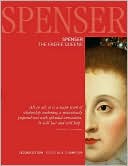

 |

|

The average rating for The Faerie Queene based on 1 review is 5 stars.
Review # 1 was written on 2012-12-21 00:00:00 Christopher Kiley Christopher KileyTo me, this is the great long poem in English, beside which Paradise Lost seems like a clumsy haiku. Where Milton is precise and sententious, Spenser is exuberant, almost mad, and always focused on sheer reading pleasure. His aim is to take you on a crazed sword-and-sorcery epic, and his style combines godlike verbal inventiveness with the sort of eye for lurid details that an HBO commissioning editor would kill for. It's almost like fan fiction. One imagines Spenser getting high over his copy of Malory one night, and then falling asleep and having a feverish opium dream about it. The Faerie Queene is the result: errant knights, evil witches and dragons, cross-dressing heroes, splenetic deities, and lots of damsels who get tied up in becomingly abbreviated outfits to await rescue. Despite this list of clichés, though, Spenser can also be fascinatingly transgressive, especially when it comes to gender roles: women in the Faerie Queene are by no means all passive weaklings, and there are no fewer than two different 'warrior maids' who ride around in full armour kicking the shit out of people who question their sense of agency or look at them funny. Note also the intriguing walk-on parts such as the giantess Argantè, who keeps men locked up 'to serve her lust' - a nice inversion of the usual trope of women being carted off as sexual prizes - and who is moreover defeated by the female knight Palladine. Incidentally, Spenser likes to come up with inventive perversions to characterise his villains: Argantè is accused of prenatal incest, which I have to admit was a new one on me: These twinnes, men say, (a thing far passing thought) While in their mothers wombe enclosd they were, Ere they into the lightsom world were brought, In fleshly lust were mingled both yfere, And in that monstrous wise did to the world appere. I don't think enough has been written about Spenser's language. There is a tendency for modern readers to gloss over the tricky bits, and think: 'Well, presumably this was an easy read back in the 1590s.' It really wasn't. Spenser's language was, even to his contemporaries, extremely archaic and convoluted, with a distinct taste for inventive coinages. It's like a kind of Elizabethan Clockwork Orange (A Clockwork Potato?). Some of this is now invisible to modern readers. Words like amazement, amenable, bland, blatant, bouncing, centered, discontent, dismay, elope, formerly, gurgling, horrid, invulnerable, jovial, lawlessness, memorize, newsman, Olympic, pallid, red-handed, sarcasm, transfix, unassailable, violin, warmonger - all of them, and hundreds more, seem uncomplicated now, but that is only because Spenser invented them and we have become used to them in the centuries since. This is not to mention the hundreds of other words he coined that did not catch on and have now become obsolete (there's another). I particularly like his flair for euphemism. Here's another awesome section, where a hapless husband has tracked down his wife after she was kidnapped by a group of satyrs. He hides nearby in the bushes, only to find out that she's actually having quite a good time: At night, when all they went to sleepe, he vewd, Whereas his louely wife emongst them lay, Embraced of a Satyre rough and rude, Who all the night did minde his ioyous play: Nine times he heard him come aloft ere day, That all his hart with gealosie did swell… 'Come aloft' of course meaning something along the lines of 'mount sexually'. There's a lot of this kind of thing - Spenser not always coming across as the most secure guy in the world. The stanza concludes with another fun figurative flourish: But yet that nights ensample did bewray, That not for nought his wife them loued so well, When one so oft a night did ring his matins bell. Haha. Love it. This form of stanza - now known as 'Spenserian' - was his own creation, and the way each one concludes in a jaunty rhyming couplet makes him very quotable. I actually wrote this bit out in a notebook more than two years ago, which shows how long I've been reading this - it's been a sort of long-term project that I've dipped in and out of in between other books. This makes it hard to review, because I've now long forgotten half the stuff that happened in the first couple of sections. (Indeed when I started reading it, I was using a version on the internet, but I fell in love with the poem so hard that I ended up buying a luxury Folio Society limited edition bound in goatskin, probably the most expensive book in my entire collection - which, as Hannah was not slow to point out, seems hard to justify for a poem that you can read online for free.) So OK, the paperback looks incredibly dull and imposing, and, yes, the idea of a 1500-page allegorical poem about Queen Elizabeth I does sound like a living nightmare - but The Faerie Queene is the opposite of boring. It's pure incident from start to finish. And if there's a message to the epic, taken as a whole, I think Spenser's closing lines point us in the right direction. He shows us that what matters in this world is not money or power - nor even, in the final analysis, the virtues that he has been exploring for nearly 40,000 lines. What matters is taking the time to find pleasure - in love, in knowledge, and, most of all, in literature: Therefore do you, my rimes, keep better measure, And seeke to please; that now is counted wise mens threasure. |
CAN'T FIND WHAT YOU'RE LOOKING FOR? CLICK HERE!!!